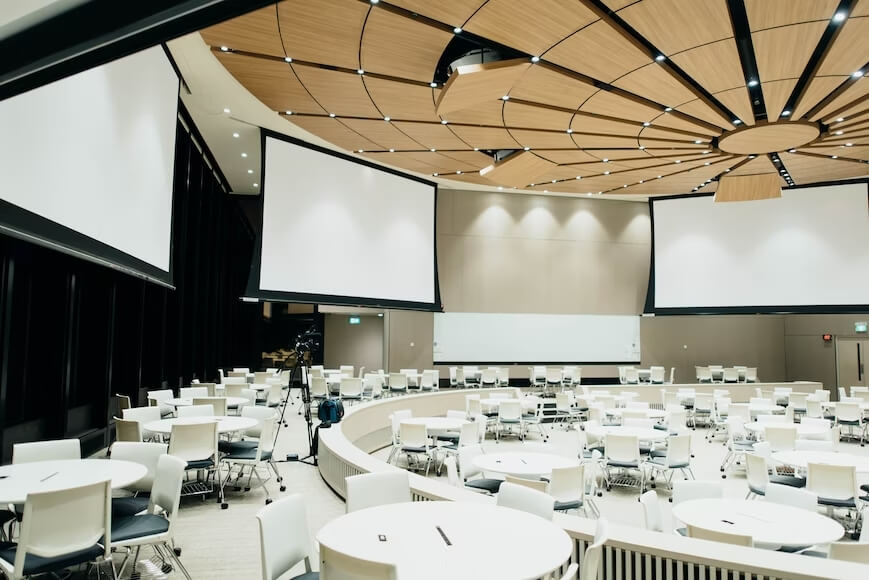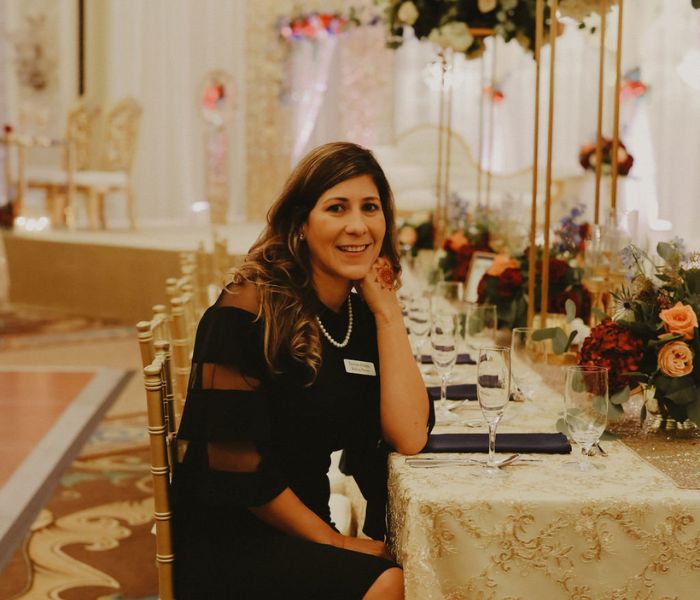July
03
Corporate events are no different when it comes to the need for careful planning and execution. It is crucial to have someone in charge who can ensure that everything goes smoothly. That’s where corporate event planning companies come in. A skilled and experienced corporate event planner can be instrumental in the success of your event.
In this guide, we will explore the role and responsibilities of corporate event planning companies. We will also provide tips on how to find a good candidate for the job and discuss when it is appropriate to hire them.

Corporate event planners work on events from the beginning to the end, transforming them from an idea into something that guests will remember.
Corporate event planners are responsible for all aspects of event planning and execution, including the design, planning, coordination, and implementation of different types of corporate functions, such as:
A corporate event planner is responsible for creating an event concept to help you reach your business goals, and then turning that idea into a successful event. Corporate event planners are key players in both the planning and sourcing stages of events.
Here are the main responsibilities and tasks of an event planner for a company.
Corporate event planners get involved right at the beginning of the planning process, when someone decides an event is necessary or could be a good way to achieve a corporate goal.
Event planners assist the team in designing an event that meets all the requirements. The event planner will consider the target audience, reason for the gathering, budget, and location. They can then create an event plan which covers all of the important details, such as dates, location, size, staffing requirements, etc. Then, they can start to think about other stakeholders and plan how they will approach companies with sponsorships or partnerships.
It’s the job of an event planner to ensure that they stay within their budget and take decisions accordingly. A corporate event planner is able to maximize their resources by negotiating with the event’s organizer.
Your event planner will have a good idea of the budget they are working with once it has been established. The budget will tell them how much money they have to spend on the venue and what is left over for corporate gifts or speaker fees. They can give you suggestions about where to spend the most money and help you negotiate great deals.
Many corporate event planners have a good grasp of communication and negotiation skills, as well as problem-solving. It’s useful when the event is at risk of going over budget. Event planners with creativity can take this opportunity to seek additional sponsorships and introduce attractive exhibitor package deals, allowing them to raise extra funds and increase the reach of their event.
The job of a corporate event planner does not end when they have designed the event. The corporate event planner is involved in the entire planning and execution of the event. They are also very hands-on when it comes to vendors and stakeholders.
An event planner has a role to play in sourcing, communicating with, and building relationships with those who support and supply your event. They will find venues and caterers and inform the audiovisual team of what is required. Pre-event conversations with stakeholders and vendors are a large part of the time spent by event planners.
On the day of an event, corporate event planners are also active. They are often found leading or supporting event teams, acting as a link between stakeholders and suppliers, and soaking in the atmosphere to get a feel for the guest’s sentiments.
You can also use them in post-event meetings to evaluate the success of an event and optimize your planning process.

You need to assess your needs before you start to talk to event planners. List the most important points so that you can understand what your event is and what you want from an event planner.
What is the goal or purpose of the event? Is it a team-building event, an educational retreat, a fundraiser gala, or something else? Decide on the primary purpose as well as any secondary goals, such as gauging interest in a product or making sales.
It is also helpful to know a few other details, like:
You can then start searching for companies that offer event planning services. The internet makes it easy to search for options. Have you got a friend or colleague who has worked with a company that specializes in corporate events? You can ask them for suggestions. It’s hard to narrow down your list of corporate event planners until you find the ones that meet your requirements.
You can narrow down your search by location. Local event planners are not necessary, but they may be the best fit for your needs since they have better relationships with local venues and vendors.
The next step would be to do some research on each company you have listed, in order to learn more about what they offer and who they are. Check out the website of each company to determine if it fits your brand. Learn about their team by reading their “About Us” page. Also, look at their Portfolio and their Services pages.
After you have gone through the process, you will likely have three or four choices. You can now make a final decision based on what you know. You’ll be able to make a better decision if you ask each company for a proposal and use it to inform your choice. It doesn’t matter which way you go, just as long as it feels like you have enough info to make a decision.
Do not hesitate to ask questions if you still have doubts. Continue to dig until you are satisfied that you have all the information needed to make the best decision for your event.
When you reach the point of evaluating the companies on your list, you will need as much information to help you make a decision. Start by asking these questions:
It is important to take your time when choosing the right corporate event planning companies. Find a company that has the experience and skills you require. You’ll get a successful corporate event, and you can continue to work with the company for future events.
Our team at DA Event Planning has accumulated a wealth of knowledge and experience in corporate event planning. We can produce the event of your dreams and take an active role in the process or a hands-off one. If you would like to learn more about our services, please contact us.
